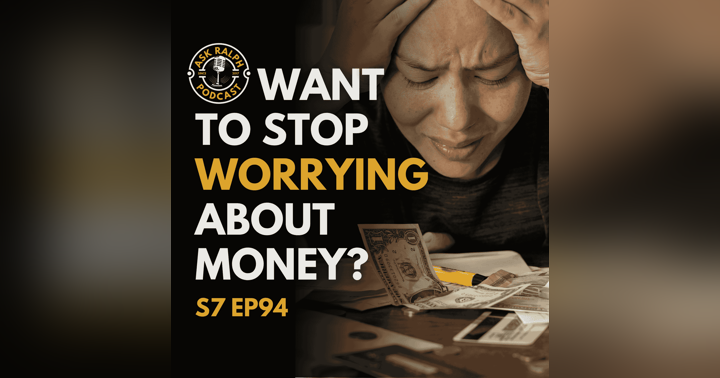Can Credit Counseling Services Really Help You Get Out of Debt?

How To Navigate the World of Credit Counseling Services?
Have you ever felt overwhelmed by debt, wondering if credit counseling services could be your lifeline or just another trap? In blogpost, Ralph Estep Jr. dives deep into the world of credit counseling services, helping listeners separate fact from fiction. Here's a comprehensive recap and some actionable advice from the episode to help you make informed decisions and Can Credit Counseling Services Really Help You Get Out of Debt?
Watch Now on Rumble
Reflecting on Past Wisdom and Looking Ahead
Before diving into the main topic, Ralph reflects on the previous episode's discussion about balancing money and generosity from a biblical perspective. He emphasizes the importance of using finances to make a positive impact, setting the stage for a thoughtful exploration of credit counseling services. Tomorrow’s episode promises to explore the increasingly popular investment vehicles known as ETFs (Exchange-Traded Funds), so stay tuned!
Understanding Credit Counseling Services
Credit counseling services offer guidance and support to individuals struggling with debt, helping them create budgets, negotiate with creditors, and develop debt repayment plans. While many reputable organizations exist, there are also scams to watch out for. Here's how to tell the difference:
- Nonprofit vs. For-Profit: Nonprofit credit counseling services are generally more trustworthy. They often provide free or low-cost services and must be transparent about their fees and practices. In contrast, for-profit services may prioritize their bottom line over your financial well-being, potentially charging high fees and exerting pressure to sign up for unnecessary services.
- Beware of Upfront Fees: One of the most common scams is the advance fee scam, where a company demands a large upfront fee without delivering any actual help. Reputable services won’t require significant upfront payments.
- False Promises: Be wary of organizations that claim they can completely erase or eliminate your debt. While negotiating with creditors can reduce what you owe, no one can make your debts disappear entirely.
Real-Life Stories: Successes and Pitfalls
Ralph shares stories from listeners to illustrate the varying experiences with credit counseling services:
- Brooke’s Success: After accumulating over $20,000 in credit card debt, Brooke sought help from a nonprofit credit counseling service through her church. With their assistance, she created a budget, negotiated lower interest rates, and ultimately paid off her debt in just over three years.
- Mark’s Misfortune: Mark, however, had a negative experience with a for-profit service that promised to settle his debt for pennies on the dollar. After paying a large upfront fee, he saw no progress, and the company eventually went out of business, taking his money with them.
Actionable Steps for Choosing a Credit Counseling Service
To avoid scams and find reputable help, follow these steps:
- Check Reputable Sources: Use the National Foundation for Credit Counseling (NFCC) to find nonprofit services in your area (visit NFCC.org).
- Be Wary of Pressure Tactics: Avoid organizations that pressure you to sign up quickly or demand large upfront fees.
- Get Everything in Writing: Ensure that all fees and services are clearly outlined in writing before committing.
- Question Unrealistic Promises: Don’t trust any organization that promises to eliminate your debt completely or guarantees specific outcomes.
- Stay Engaged: Keep track of your progress and maintain communication with your credit counselor.
Final Thoughts
Credit counseling services can be a valuable resource for managing debt, but it’s crucial to choose wisely. By doing thorough research and approaching the process cautiously, you can find the support you need to take control of your finances and achieve your goals.











